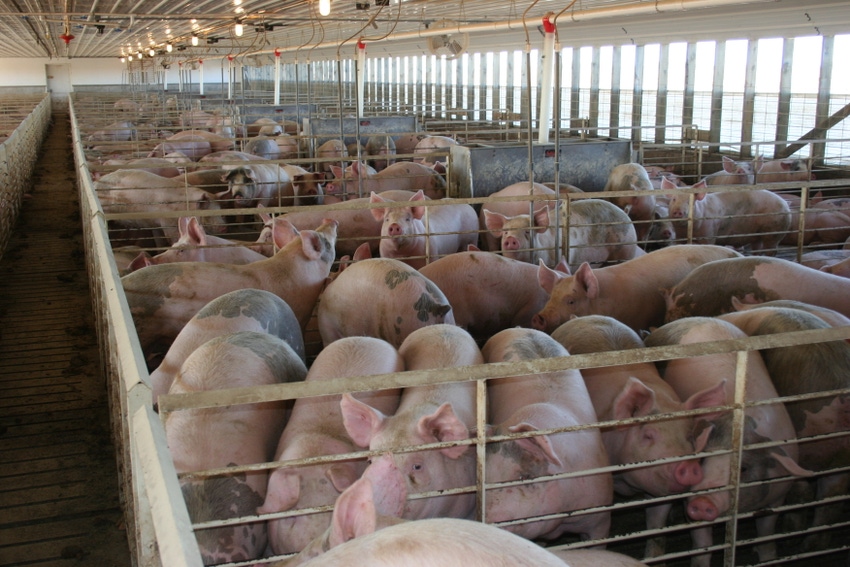
On Nov. 8, 2017, North Carolina U.S. District Judge Britt issued an order involving 26 cases regarding Murphy-Brown LLC., a subsidiary of Smithfield Foods, Inc.
Widespread attention
The cases have drawn widespread attention from media outlets, including the New York Times, Washington Post and the Charlotte News & Observer, which earned a Pulitzer Prize for its reporting on smells in hog country.
North Carolina ranks second only to Iowa with approximately 2,217 hog farms according to a 2012 USDA census. One environmental group found that approximately 160,000 North Carolinians live within a half-mile of a hog or poultry farm.
33-page decision
These cases concern how Murphy-Brown’s hog farm operations impact local citizens.
The 33-page decision deals with numerous motions filed by both plaintiffs and defendant, Murphy-Brown. Approximately 16 motions were handled by the District Court. Many of them denied Murphy-Brown’s request for summary judgment. For example, defendant’s motion for knocking out “annoyance damage claims” was denied. Also, Murphy-Brown was unable to get partial summary judgment on “fear of” claims by the plaintiffs.
Right-to-Farm
One defense denied by the Court is particularly troubling. Every state has a Right-to-Farm (RTF) law. Murphy-Brown raised this affirmative defense. North Carolina’s RTF, like all other states, was drafted to protect farming operations. North Carolina has a statute which limits lawsuits or provides a defense to agriculture by limiting circumstances whereby a farming operation may be deemed a nuisance. If an agricultural operation does create a nuisance which is caused from “negligent” or “improper operation” the agricultural operation may not receive protection from the RTF statute.
North Carolina’s law reads as follows: “No agricultural or forestry operation or any of its appurtenances shall be or become a nuisance, private or public, by any changed conditions in or about the locality outside of the operation after the operation has been in operation for more than one year, when such operation was not a nuisance at the time the operation began.”
A number of courts have ruled in favor of farmers because the land in question has been a farming operation for centuries. Once a farm always a farm. Moreover, the statute makes it clear that if the farming operation has been in operation for more than one year and the operation was not a nuisance at the time it began, the operation is protected by the RTF statute.
Judge Britt concluded the plaintiffs lived on affected properties prior to Murphy-Brown’s beginning swine farm operations. The Court made it clear “This is not a case in which the non-agriculture use extended into an agricultural area.” The Court did not look at whether the land had always been in agriculture but declared “Their land use [housing] had been in existence well before the operations of the subject farms [Murphy-Brown] began. At bottom, plaintiffs’ nuisance claims have nothing to do with changed conditions in the area, and therefore, as a matter of law, the right-to-farm law does not bar those claims. Accordingly, plaintiffs are entitled to summary judgment on this defense.”
Other courts have ruled differently. Because the RTF defense has been destroyed by Judge Britt, several claims will be tried in court. The plaintiffs allege Murphy-Brown and its hog farms have caused “anger, embarrassment, discomfort, annoyance, inconvenience, decreased quality of life,…,[and] physical and mental discomfort….” The court denied Murphy-Brown’s request to eliminate these claims and the availability of these damages will be allowed to be heard and tried.
Other claims
Another troubling claim allowed by the Court is the plaintiffs allege the nuisance caused by the hog barns “…has caused…reasonable fear of disease and adverse health effects.” Murphy-Brown attempted to eliminate this claim but failed.
The scary claim is punitive damages. Murphy-Brown had also requested this claim be rejected by the Court, and it refused. To establish punitive damages in North Carolina, the plaintiffs “…must prove by clear and convincing evidence that the defendant is liable for compensatory damages and that the conduct causing the plaintiffs’ injury was accompanied by fraud, malice, or willful or wanton conduct.…” The Court declared in its decision that the punitive damages issue will be decided at the end of the plaintiffs’ case-in-chief or after all the evidence is heard.
This Order issued by the Court is indicative of what can happen to hog producers when the RTF defense is destroyed.
The opinions of the author are not necessarily those of Farm Futures or Farm Progress.
About the Author(s)
You May Also Like




